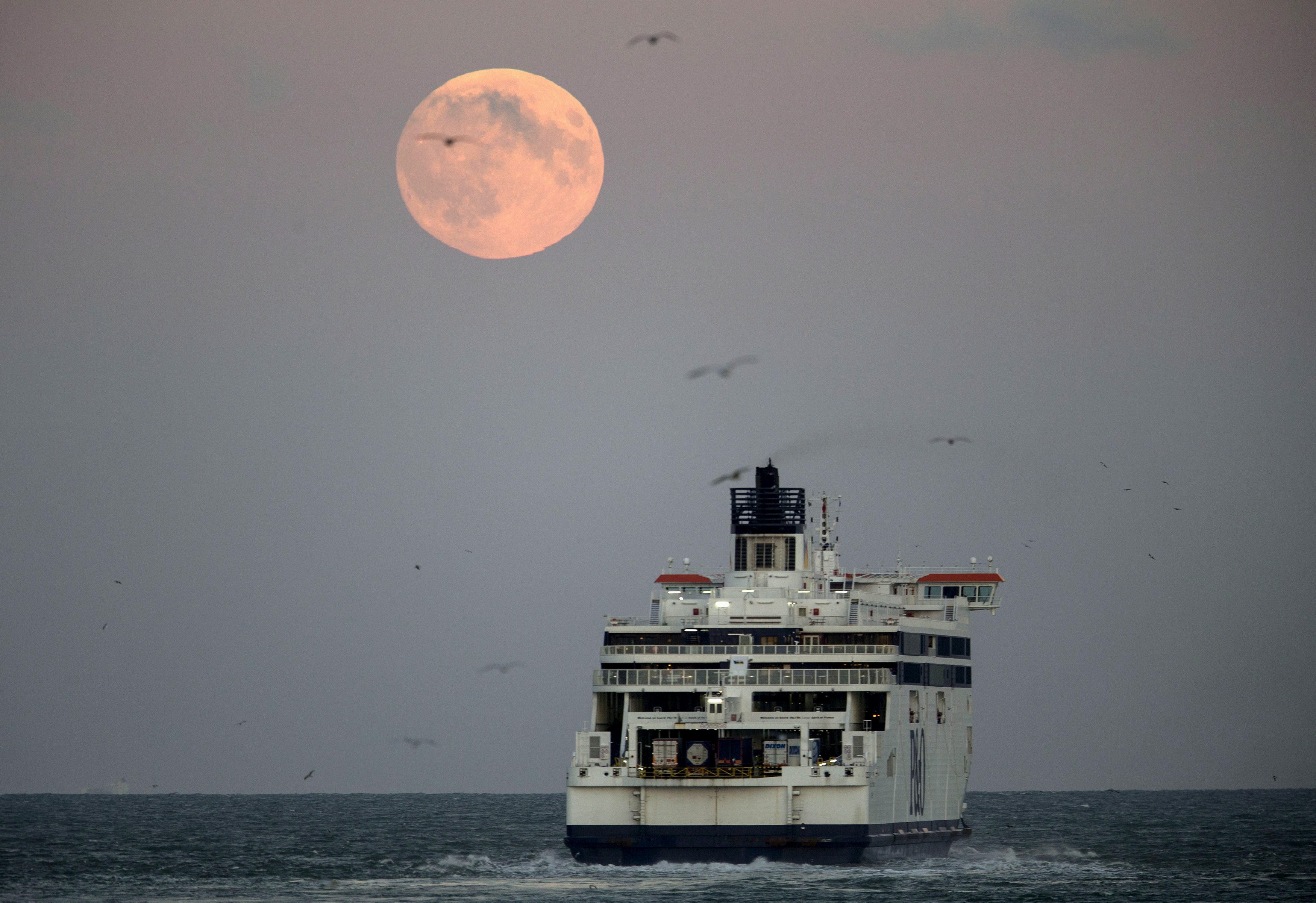FILE PHOTO: A ferry leaves the port of Dover, Britain, September 27, 2015. REUTERS/Eddie Keogh/File Photo
By Kaye Wiggins (Bloomberg) — The companies that run the Channel tunnel are suing the British government over its award of ferry contracts to handle freight shipments in a no-deal Brexit, just days after one of those contracts, with a startup company that doesn’t own any ships, fell through.
Channel Tunnel Group Ltd. and France-Manche SA accuse the government of a “secretive and flawed procurement exercise” for the backup ferry service in the event of a no-deal Brexit, their lawyer Daniel Beard said in court Monday. The companies together form Eurotunnel, which operates the link between the U.K. and mainland Europe.
The lawsuit challenges the government’s award of ferry contracts to Brittany Ferries of France, Danish shipping firm DFDS and U.K.-based Seaborne Freight for additional freight services between Britain and continental Europe. The 13.8 million-pound ($17.8 million) Seaborne contract was scrapped when it became clear the company, which doesn’t own any ships, wouldn’t meet its requirements, the Department for Transport said Saturday.
The lawsuit is a fresh setback for U.K. Transport Secretary Chris Grayling, who faced calls to resign over the weekend after the Seaborne contract fell through. It comes just weeks before the U.K.’s planned departure from the EU on March 29, as Prime Minister Theresa May seeks to buy time to renegotiate her Brexit agreement with the bloc.
‘Extreme Urgency’
The contracts were awarded without a publicized competition and relied on “extreme urgency provisions,” the tunnel companies said in their court filings for Monday’s hearing. The contracts also amounted to an unfair subsidy for companies, they said.
A spokeswoman for the Department for Transport said, however that the government had carried out a “competitive procurement process to secure additional ferry capacity between the U.K. and the EU, which is in line with proper procedures.”
Eurotunnel has previously provided ferry services under the MyFerryLink brand, Beard said. That line was shut down, however, after a U.K. court in 2015 upheld a competition regulator’s decision blocking it from running cross-channel sailings between Dover and Calais.
It’s “remarkable” that Eurotunnel hadn’t been told about the ferry contracts, since it had run cross-Channel services in the past few years, Beard said.
The government doesn’t accept that it acted unlawfully in entering the contracts, it said in court filings. It said Eurotunnel’s bid for a speedy trial timetable, which appeared to be “driven by the date of 29 March 2019,” is “wholly unrealistic.” The government’s resources are “extremely stretched in the run up to the U.K.’s departure from the European Union” and dedicating resources to the lawsuit “inevitably means that they are diverted from other priorities,” it said.
Eurotunnel says the first time it heard about the three Brexit ferry contracts was when the Department for Transport announced they had been awarded in December, judge Peter Fraser said as he summarized the case at the hearing. A four-day trial on the dispute will start March 1, Fraser said, because “the urgency of the matter is in my judgment somewhat obvious.”
Fraser said he found it “unsatisfactory” to be overseeing the case and only to discover that the government was in advanced talks to secure additional no-deal freight capacity, in the wake of the Seaborne contract collapse, by reading a BBC News article Saturday.
The talks don’t mean that the government is running a fresh procurement exercise, the Department for Transport’s lawyer Ewan West said.
The case is Channel Tunnel Group LTD & Anr v. The Secretary of State for Transport, High Court of Justice, Case No. HT-2019-000028
© 2019 Bloomberg L.P

 Join The Club
Join The Club











